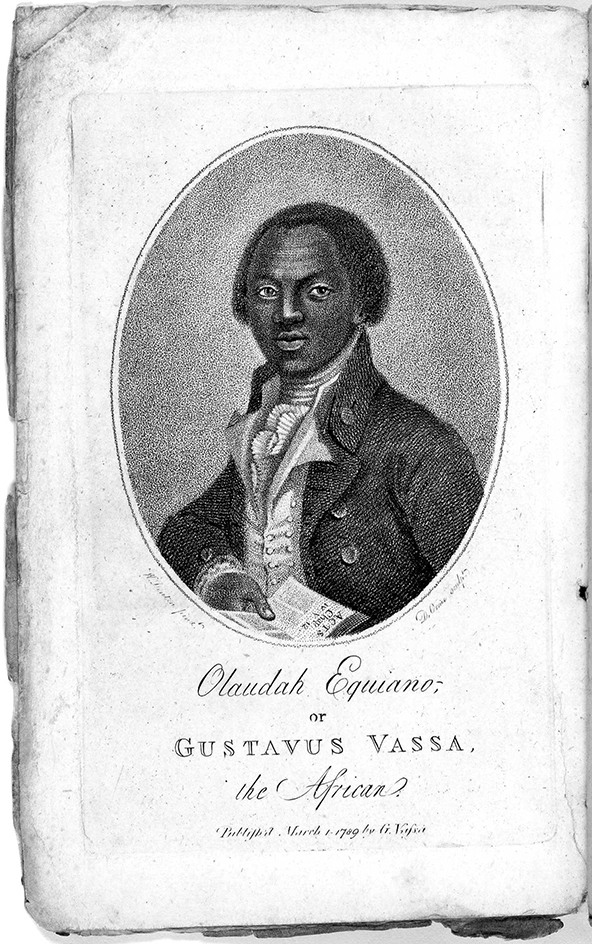Equiano, Olaudah << ehk wee AHN oh, oh LAW duh >> (1745-1797), was a Black abolitionist in Britain (now called the United Kingdom). Before becoming an abolitionist, he had been an enslaved person. Equiano wrote a memoir, The Interesting Narrative of the Life of Olaudah Equiano (1789), which vividly describes his childhood, enslavement, and eventual freedom. The book was the first influential autobiography of an enslaved person. It fueled a growing antislavery movement in Britain.

Most of what is known of Equiano’s early life comes from his memoir. According to Equiano, he was born in 1745 in the Eboe province, in what is now southern Nigeria. His father was an Igbo chief. The Igbo are a large ethnic group in Nigeria. Raiders kidnapped Equiano and his sister when he was about 11 years old and sold the children to traders of enslaved people. The children were shipped across the Atlantic Ocean to Barbados, and then to Virginia, a British colony in North America. Due to a lack of written records, it is uncertain whether Equiano’s description of his early life is accurate. As an adult, he twice listed his birthplace as South Carolina. Historians can verify all the facts in Equiano’s memoir, except for the description of his early years.
In 1756, in Virginia, Equiano’s slaveholder sold him to Michael Pascal, an officer in Britain’s Royal Navy. Pascal renamed the boy Gustavus Vassa, after Gustav I Vasa, a Swedish king who ruled during the 1500’s. While with Pascal, Equiano learned to read and write.
In 1762, Pascal sold Equiano to a ship’s captain in London, England. The captain took Equiano to Montserrat, an island in the Caribbean Sea. In 1763, Equiano was sold to Robert King, a Quaker merchant from Philadelphia, Pennsylvania. King helped Equiano improve his reading and writing. King also allowed Equiano to engage in trading. By 1766, Equiano had saved enough money to buy his freedom. He spent much of the next 20 years traveling the world.
In 1786, while in London, Equiano became involved in the abolition movement. He lectured against the cruelty of British slaveholders. He also worked to end slavery and to resettle formerly enslaved people.
In 1789, Equiano’s memoir was published under his African name. The book became immensely popular and made Equiano wealthy. In the 1790’s, Equiano met the British abolitionist William Wilberforce. He helped Wilberforce to lead the abolitionist cause.
Equiano died on March 31, 1797. In 1807, 10 years after Equiano’s death, Wilberforce and other British abolitionists persuaded the British Parliament to outlaw the Atlantic trade of enslaved people. In 1833, another bill abolished slavery throughout the British Empire.
